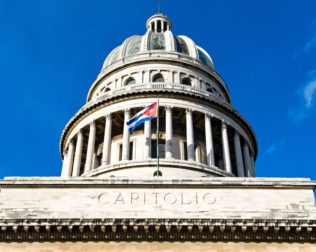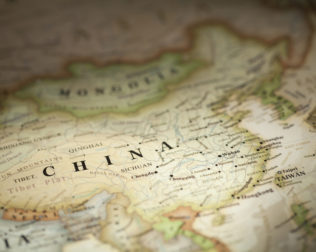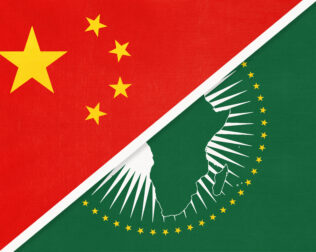By Christopher Walker
In democratic countries, the spheres of culture, academia, media, and publishing (the CAMP sectors) are open and accessible, and they must remain so. Yet at a time when the leading authoritarian regimes are contesting democracy at the level of ideas, principles, and standards, this openness unfortunately makes them ripe targets for sharp power. This typically involves efforts at censorship or the use of manipulation to sap the integrity of independent institutions that are essential to the health of the public sphere.
A prominent example of this challenge is China’s global network of more than five hundred Confucius Institutes. First launched in 2004 and now found in more than eighty countries, these institutes are initiatives of the Chinese state that straddle the worlds of culture and academia, providing Chinese-language instruction and various cultural offerings through a presence on university campuses. Chinese authorities portray the Confucius Institutes as being similar to France’s Alliance Française or Germany’s Goethe-Institut, both of which receive government funding to give language and culture classes. Yet unlike those freestanding organizations, the Confucius Institutes are embedded within educational institutions. Moreover, they employ staffers who at times have sought to block host universities from holding discussions on topics sensitive to the Chinese Communist Party (CCP), such as Taiwan or Tibet.
At a time when the leading authoritarian regimes are contesting democracy at the level of ideas, principles, and standards, this openness unfortunately makes [the “CAMP” sectors] ripe targets for sharp power.
Little about these institutes is transparent. It is hard to say, for instance, what amount of Chinese government money goes to individual host universities. It is also unclear what level of control universities have over curricula within the Institutes. Since the agreements between these parties generally remain confidential, document leaks and requests submitted under the U.S. Freedom of Information Act are among the major sources of information on such matters.
Recent reports have found that there are CCP cells on college campuses in the United States and other democracies. Chinese embassies and consular officials have been detected channeling resources and programmatic guidance to associations of Chinese students in ways that suggest inappropriate behavior and plans to manipulate the academic environment. Beijing’s ambitions in this area should come as no surprise. In 2017, China’s education ministry instructed Chinese diplomats around the world to “build a multidimensional contact network linking home and abroad—the motherland, embassies and consulates, overseas student groups, and the broad number of students abroad.” Such activities are part of a broader effort to influence the public sphere in the United States and other democracies that is being brought into sharper relief through important reporting by independent journalists.
Also at risk of being impacted by sharp power is the integrity of academic publishers. In 2014, Cambridge University Press (CUP) declined to publish Karen Dawisha’s book Putin’s Kleptocracy: Who Owns Russia? This groundbreaking work of scholarship meticulously pieced together the post-Soviet origins of the current Russian system, but CUP feared libel suits, especially in the British courts. The book was eventually brought out by Simon and Schuster, but not before Dawisha wrote an open letter to CUP decrying what she called “pre-emptive book-burnings as a result of fear of legal action.”
In August 2017, CUP took the controversial step of removing roughly three-hundred articles from a Chinese website that hosted the China Quarterly. The move came after the PRC’s General Administration of Press and Publication threatened to make all CUP-published journals inaccessible from within China. In this case, pushback from the academy and civil society caused CUP to reverse its removal decision. Yet in October 2017, Springer Nature, which is among the world’s largest publishers of scholarly periodicals, announced that under PRC pressure it had blocked access on its Chinese-language website to hundreds of articles, many dealing with elite politics, human rights, Taiwan, and Tibet.
Autocrats are now bending globalization to their own ends by manipulating discourse abroad, especially in the wide-open information space afforded to them by the democracies.
It is impossible to know for certain the degree to which intimidation from authoritarian governments has already made scholars and publishers “sensitive-topic averse.” The “dirty secret” of self-censorship by Western academics who write about China—and whose careers thus depend on access to the country—may be bigger than previously thought. Exposing the hidden pressures is a first step toward countering the censors’ insidious influence.
Meanwhile, autocrats are now bending globalization to their own ends by manipulating discourse abroad, especially in the wide-open information space afforded to them by the democracies. Massive investments in overseas media infrastructure play a central role.
As China’s media platforms expand and its largest internet firms go global, Beijing’s ability to curate information in a systematic and selective manner will only grow stronger, especially in places where local media organizations are vulnerable. One such place is Africa. There, China has made major investments in media infrastructure, and Chinese censorship tactics are being deployed in matters that Beijing deems sensitive. Throughout sub-Saharan Africa, Chinese state-media outlets have bureaus with two sets of editors: There are African editors on the local payroll, but a group of Chinese editors in Beijing vets their decisions, at least regarding stories that the Chinese authorities feel strongly about. African reporters might have leeway to cover local news, but they may well find Beijing rejecting, censoring, or altering their content when Chinese interests are involved—all to ensure that China constantly appears in a “positive” or “constructive” light.
Meeting the Multidimensional Sharp Power Challenge
The challenge of sharp power is multifaceted, and so must be any response. Society-wide countermeasures are needed, but democracies must take care that such responses do not make things worse. Democracies cannot sacrifice their own standards and values in order to safeguard against the authoritarians’ manipulation and censorship schemes.
Publishers, university administrators, media executives, and others who find themselves facing the gambits of sharp power must redouble their commitment to democratic standards—rejecting all efforts to restrain free political expression would be a good start. Common standards must be established and adhered to by such institutions in order to reduce their exposure to sharp power and safeguard their integrity.
As long as China and Russia remain unfree societies in which independent institutions are unable to hold the top leadership accountable, their authoritarian regimes will continue to exert sharp power. The democracies must draw upon their reserves of innovation and determination as free societies to meet this daunting challenge.
This post draws from the article “What Is ‘Sharp Power?’” that appears in July 2018 issue of the Journal of Democracy.
Christopher Walker is vice president for studies and analysis at the National Endowment for Democracy. Follow him on Twitter @Walker_CT.
The views expressed in this post represent the opinions and analysis of the author and do not necessarily reflect those of the National Endowment for Democracy or its staff.
Image Credit: Chinnapong/Shutterstock







Comments
International Forum for Democratic Studies September 2018 Newsletter: Combating Sharp Power with Soft Power – NATIONAL ENDOWMENT FOR DEMOCRACY
September 10, 2018
[…] “The ‘CAMP’ Sectors and the Threat from Sharp Power” by Christopher Walker […]